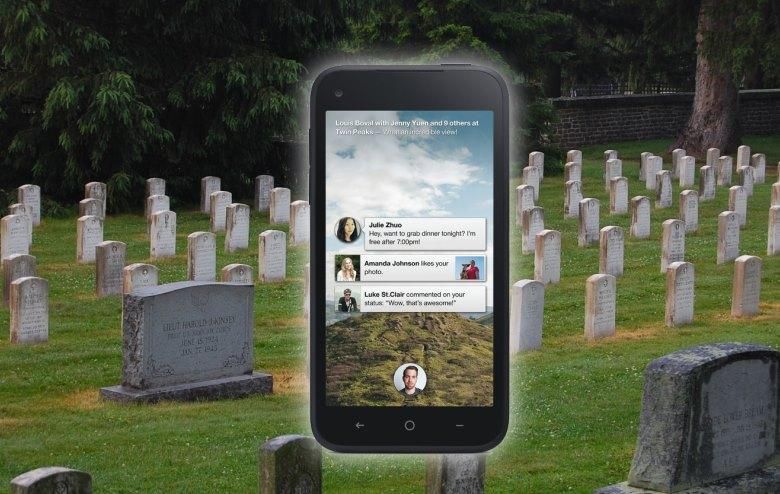HTC seems like they want to be “number one” — at least they want people to associate them with that level of prestige. Why else would they name their devices “One” and “First” when everyone else is rapidly iterating their model numbers? Recently the hardware maker teamed up with a social networking service to do something bold and creative: they released a smartphone that was “Facebook centric”. When you turned on your phone you got Facebook first. Finally, the much rumored “Facebook phone” had arrived — but they were bold enough not to call it that. And now, just a few months later, the HTC First is dead.
Ironically, the HTC First isn’t the first “Facebook phone”. Remember the HTC ChaCha (or ChaChaCha) and the Salsa from back in 2011? They were a somewhat under-powered phones with a dedicated button sporting the Facebook “f” icon. The phones were decidedly Android, and other than the Facebook button, they didn’t really have much to do with Facebook.
Fast-forward to today and we’ve got another HTC/Facebook endeavor, though this time the entire user-experience is Facebook. The HTC First isn’t high-end hardware by any stretch of the imagination, but it was released with an exclusive launcher: Facebook Home. On first look, Facebook Home looked like it would be a revolutionary way to interact with your smartphone, making social networking first and foremost — albeit for only one of the major social networks.
How was Facebook Home Received?
I could go into quite a bit of detail about all the features that Facebook Home offers over the standard Facebook experience, which of them are good, and which of them flopped. Suffice it to say that unless you live and die by your Facebook timeline, the only really “cool” feature is Chat Heads — floating notifications that are quickly being ported to custom ROMs.
In general, however, Facebook Home didn’t succeed. It has already run its course. If you don’t already have it, there’s no reason to go out and get it… especially not until they make some upgrades and make it available for a wider variety of devices.
But that’s a Facebook failure, and it shouldn’t be considered an HTC failure.
How was the HTC First Received?
Pocketnow’s Taylor Martin asked the question: Has anyone actually bought an HTC First? The conclusion and corresponding comments seem to agree that, other than the US$99 price point (on-contract, of course), the HTC First isn’t a particularly appealing phone.
The price, combined with the ability to “turn off” the Facebook experience and revert to “stock Android” did appeal to a certain group of customers. For the most part, they’re happy with their un-Facebooked phone.
What does this mean for HTC?
In no uncertain terms, the HTC First is dead. Carriers are trying to push boxes out as quickly as possible, and the price has dropped from 99-bucks to 99-cents in many cases. After a very short amount of time, the HTC First is dead.
Many voices may say this is another nail in the coffin of HTC. They’ll argue that HTC can’t predict the market, or their devices are short-lived. You should reject these voices. What they suggest is that HTC’s attempts at making a better smartphone are somehow just a sham, and that pairing up to bring a branded experience somehow implies that they can’t be trusted.
Instead, what the First really means is that not only is HTC able to work with non-traditional partners to create a novel and unique experience, they’re also able to implement and realize that plan with actual hardware. They’re able to work with others to extend the Android experience and push the platform forward. They’re nimble enough to adapt and to try new things.
While some may see HTC as crazy, I see genius. I see the promise of a company who has wowed us in the past, and isn’t afraid to take chances on how to wow us in the future. Although HTC isn’t “number one” right now, don’t count them out of the race just yet.

